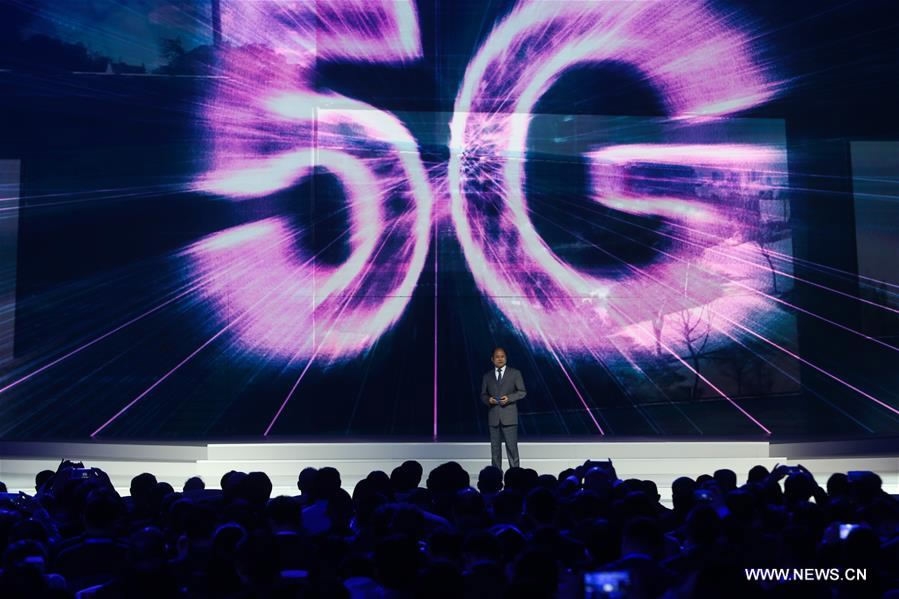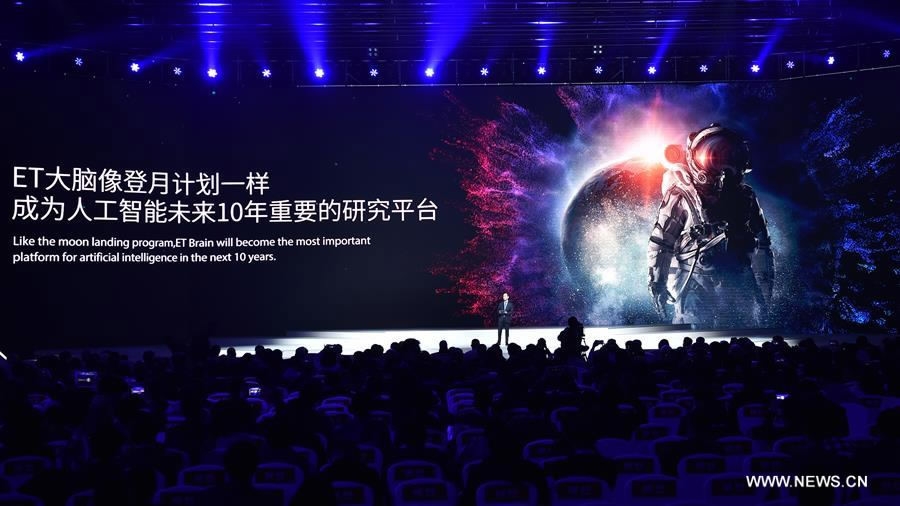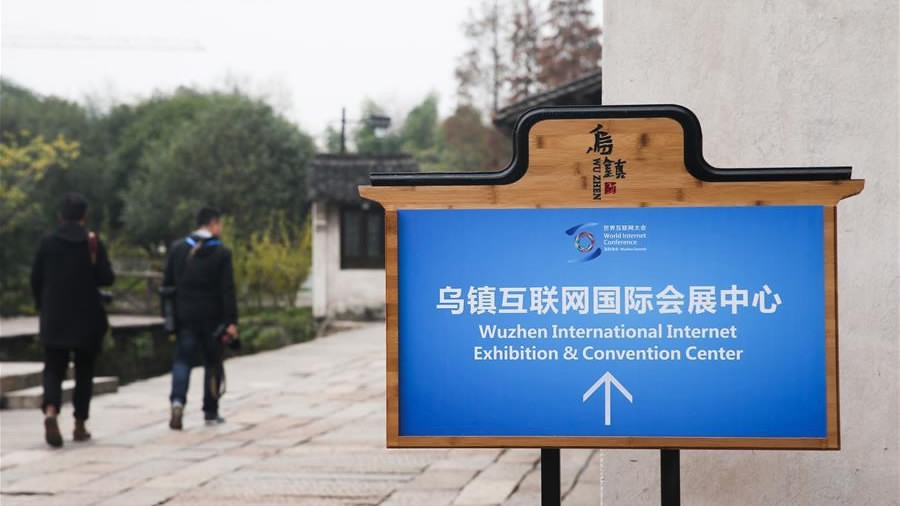As tech leaders and influencers from throughout the world meet this week for the fourth World Internet Conference in Wuzhen, one defining theme, whether explicitly discussed or not, underlies most of the issues of focus: the dominance of the world’s handful of internet behemoths, and how the rest of the world is scrambling to find a place in the internet that they are increasingly defining.
From convenient novelty to essential utility
Think about the first thing you do every morning. If you’re anything like me, you’re interacting with multiple internet giants within your first five waking minutes. Maybe you pick up your phone (Apple, or Google’s Android OS), check your messages (Tencent’s Wechat, or Facebook’s Messenger or Whatsapp), and look through your email (for me, it’s Google’s Gmail). Maybe you get in your car and drive using a navigation app (Google, Baidu, or Tencent), or buy groceries, light bulbs, socks, or a birthday gift for your daughter (Amazon, Alibaba, JD). Here in China, the services of internet giants like Alibaba and Tencent are perhaps more deeply woven into the lives of their users than their overseas counterparts. Last Thursday, I lost my wallet, with all bank cards and cash inside. I did not use cash or a credit card once until the following Monday but experienced almost no change to my daily life. Why? I use Wechat Pay for nearly all of my purchases anyway.

Xu Zhijun, Huawei's rotating CEO, introduces achievements of 5G technology during the release ceremony for world-leading Internet scientific and technological achievements in Wuzhen, east China's Zhejiang Province, Dec. 3, 2017. The Fourth World Internet Conference opened in Wuzhen on Sunday. /Xinhua Photo
Xu Zhijun, Huawei's rotating CEO, introduces achievements of 5G technology during the release ceremony for world-leading Internet scientific and technological achievements in Wuzhen, east China's Zhejiang Province, Dec. 3, 2017. The Fourth World Internet Conference opened in Wuzhen on Sunday. /Xinhua Photo
In many ways, the dominance and ubiquity of these firms’ services have moved from being convenient and entertaining to essential institutions in daily life, and it has meant absolute windfalls for these companies and their shareholders. In the last five years, Amazon’s valuation has multiplied by six, and ditto for Facebook. For China’s Tencent, the factor is more than seven. Of the world’s twelve most valuable companies, seven are internet firms. Of the top six, five of them are internet companies.
Good for society?
While shareholders and employees of these giants have benefited greatly, the jury is still out regarding their impact on the economy and society as a whole. While Amazon grows in leaps and bounds, these are dark times for many of America’s traditional retailers. Facebook recently has been at the center of a firestorm of controversy regarding Russia’s attempts to influence the American election by buying Facebook ads to target key voters with false information. While expert opinions differ on the degree of impact of Russia’s Facebook ads, the algorithms Facebook uses to target users for its content has undoubtedly created “political bubbles” that further polarize the American people and have made centrist political views increasingly rare.
What is perhaps more concerning is how strikingly few employees these companies have, especially when compared to their wealth. Take, for example, consumer goods company MNC Unilever, which has a market cap between 150 and 160 billion US dollars and employees over 170,000 mostly middle-class workers. Chipmaker Intel is worth 160 to 170 billion US dollars and employs over 105,000 employees. Facebook is worth roughly 500 billion US dollars but only employs about 17,000.
Looking into the future, it is easy to be alarmed by the potential of this trend becoming even greater, as the rise of artificial intelligence will displace large percentages of the world’s workers. I recently visited JD’s gigantic new Beijing headquarters. In their cavernous entryway, there is a series of futuristic technologies on display. There are vending machines that sell clothes, an unmanned convenience store, and a booth where you can view JD’s new delivery drones. A pessimist could easily look at that these and think, “how many jobs will these innovations eliminate?”
The tech giants’ new role: Leaders in social good
The growing dominance of these firms and the social and economic disruption they create have placed increasing pressure on them from both consumers and governments to take greater responsibility in promoting social well-being. Many of the most powerful people in Silicon Valley have called for a universal basic income as a way to ease the shift into AI. Bill Gates and Mark Zuckerberg have famously pledged to give away the vast majority of their wealth to pro-social causes. Earlier this year, Zuckerberg released a 5,700-word manifesto about his company and how he views its role in creating a better world.

Zhang Yong, CEO of Alibaba, introduces its artificial intelligence (AI) ET Brain during the release ceremony for world-leading Internet scientific and technological achievements in Wuzhen, east China's Zhejiang Province, Dec. 3, 2017. The Fourth World Internet Conference opened in Wuzhen on Sunday. /Xinhua Photo
Zhang Yong, CEO of Alibaba, introduces its artificial intelligence (AI) ET Brain during the release ceremony for world-leading Internet scientific and technological achievements in Wuzhen, east China's Zhejiang Province, Dec. 3, 2017. The Fourth World Internet Conference opened in Wuzhen on Sunday. /Xinhua Photo
In China, encouraged by the government, top tech firms have begun paying serious attention to their corporate social responsibility programs. In many ways, they have used their operational strengths to address issues that may be challenging for the government to manage alone. The Tencent Foundation, for example, has created a platform through which charities are vetted for credibility, and through which they can receive donations. The Alibaba Foundation aims to promote entrepreneurship among the poor and rural population, with initiatives that focus on environmental protection and civil well-being. “We are dedicated to eliminating poverty, not eliminating poor people,” says Sun Lijun, head of Alibaba’s CSR efforts.
As for JD, when I visited their HQ in Beijing which showcased their vision for a future with far fewer blue-collar workers, I expected to be disappointed by the way they viewed their role in society. However, after speaking with those working on behalf of their CSR programs, I was surprisingly impressed by how deeply the company’s leaders think about how the e-commerce firm can contribute to social well-being in China. They seem to be taking action on this as well.
Despite the efforts of these firms, however, one cannot help but think that they are like trying to paddle a canoe up a waterfall. What they are currently doing with the CSR program, albeit admirable, has yet to have the same colossal impact as their business.
Click here for more about the World Internet Conference 2017
(Elliott Zaagman is a corporate trainer, executive coach, and writer based in Beijing. The article reflects the author’s opinion, not necessarily the views of CGTN.)




